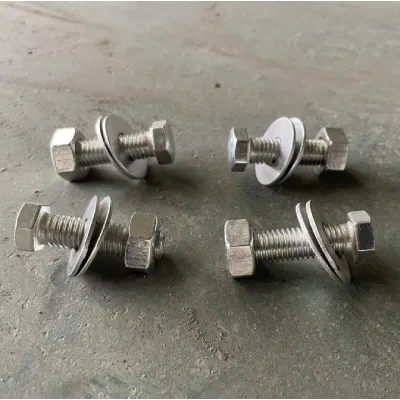loading...
- No. 9, Xingyuan South Street, Dongwaihuan Road, Zaoqiang County, Hengshui, Hebei, China
- admin@zjcomposites.com
- +86 15097380338
- Welcome to visit our website!
glass fiber reinforced polymer gfrp rebar
Glass Fiber Reinforced Polymer (GFRP) Rebar A New Era in Construction
In the ever-evolving landscape of construction materials, Glass Fiber Reinforced Polymer (GFRP) rebar stands out as a remarkable innovation. Traditional steel rebar has long been the mainstay of concrete reinforcement, but GFRP rebar is changing the game with its unique properties and advantages. This article explores what GFRP rebar is, its benefits, and its implications for the construction industry.
What is GFRP Rebar?
GFRP rebar is a composite material made from a polymer matrix reinforced with glass fibers. This combination results in a lightweight, high-strength alternative to steel reinforcement bars. GFRP rebar is typically manufactured using pultrusion, a process that involves drawing fibers through a resin bath and then curing them to form a solid, durable product. The resulting rods possess high tensile strength and stiffness, making them effective for reinforcing concrete structures.
Advantages of GFRP Rebar
1. Corrosion Resistance One of the most significant advantages of GFRP rebar is its resistance to corrosion. Unlike steel, which can rust over time when exposed to moisture and chemicals, GFRP is inert and non-corrosive. This makes it especially suitable for environments that are highly acidic, saline, or otherwise harsh, such as marine constructions, bridges, and roadways. The absence of corrosion leads to longer service life and reduced maintenance costs.
2. Lightweight GFRP rebar is significantly lighter than steel, weighing about one-fourth of its steel counterpart. This reduced weight not only makes handling and installation easier but also reduces transportation costs and allows for simpler structural designs. The ease of manipulation can lead to faster construction times and increased efficiency on-site.
3. High Strength-to-Weight Ratio GFRP rebar offers an impressive strength-to-weight ratio, which enhances its performance in load-bearing applications. Its high tensile strength ensures that it can carry substantial loads, making it a viable option for a variety of structural applications.
glass fiber reinforced polymer gfrp rebar

4. Non-Magnetic and Non-Conductive GFRP rebar does not interfere with electromagnetic fields, making it ideal for use in applications where sensitive electronic equipment is present, such as in MRI rooms or near communication towers. Additionally, its non-conductive property makes it suitable for electrical installations.
5. Environmental Benefits The production of GFRP rebar has a lower environmental impact compared to steel rebar. Furthermore, its longevity and durability contribute to sustainability in construction by reducing the frequency of repairs and replacements.
Applications of GFRP Rebar
The applications for GFRP rebar are diverse and growing. Common uses include
- Bridge Construction GFRP rebar's resistance to corrosion makes it an ideal choice for reinforcing bridges, where exposure to moisture and road salts can significantly hinder the lifespan of traditional rebar. - Underground Structures Tunnels and parking garages benefit from GFRP’s lightweight and non-corrosive properties, which are critical in confined spaces. - Transportation Infrastructure Roads, highways, and other transportation infrastructures are increasingly adopting GFRP rebar to enhance durability and reduce maintenance overhead. - Marine Structures Given its resistance to saltwater and other aggressive environmental conditions, GFRP rebar is particularly advantageous for docks, piers, and seawalls.
Conclusion
In summary, Glass Fiber Reinforced Polymer rebar is a revolutionary material that presents numerous advantages over traditional steel reinforcement. With its corrosion resistance, lightweight nature, and high strength, GFRP rebar is paving the way for safer, more sustainable, and cost-effective construction practices. As the construction industry continues to look for innovative solutions to modern challenges, GFRP rebar stands poised to play a significant role in shaping the future of infrastructure development.
-
GRP Structures: The Future of Lightweight, High-Performance EngineeringNewsJun.20,2025
-
FRP Water Tank: High-Performance Storage for Corrosive and Clean Water SystemsNewsJun.20,2025
-
FRP Square Tube: The New Industry Standard for Chemical and Structural ApplicationsNewsJun.20,2025
-
FRP Pultruded Profiles: The Ultimate Choice for Lightweight Structural StrengthNewsJun.20,2025
-
FRP Handrails: The Safer, Smarter, and Stronger Choice for Modern InfrastructureNewsJun.20,2025
-
FRP Grating: The Smart Solution for Durable, Lightweight Industrial FlooringNewsJun.20,2025
-
Why Choose a Galvanized Water Tank for Your Storage NeedsNewsMay.21,2025
